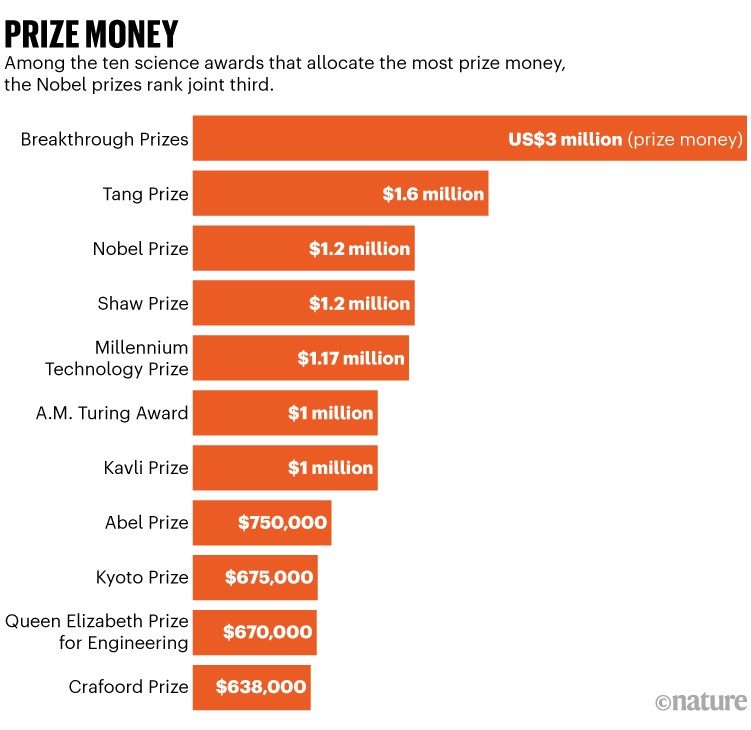The Bangladesh Daily Star publishes an open letter, and the NY Times provides some general background.
Here's the open letter to Prime Minister Sheikh Hasina:
‘Judicial harassment of Yunus’: 104 Nobel laureates, 79 global figures voice concern
"A total of 104 Nobel Laureates and 79 other global figures in an open letter to Prime Minister Sheikh Hasina yesterday expressed concern about the safety and freedom of Nobel Laureate Prof Muhammad Yunus.
...
"As you know, Prof Yunus' work, which has been inspirational to all of us, focuses on how social business can be a force for international progress resulting in zero poverty, zero unemployment, and zero net carbon emissions. He is a leading example of how Bangladesh and Bangladeshis have contributed to global progress in recent decades. We sincerely wish that he be able to continue his path-breaking work free of persecution or harassment.
...
"According to the case documents, officials of the Inspection for Factories and Establishments Department on August 16, 2021, inspected the office of Grameen Telecom in the capital's Mirpur and found several violations of labour laws.
"On June 6 this year, the court framed charges against the accused -- including Prof Yunus -- in the case. The trial began on August 22.
...
"In its review, the law firm said, "Professor Yunus is facing six months in prison for a crime that he not only did not commit, but that legally does not exist….Events are moving quickly in Bangladesh driven by a forthcoming election and a presumed desire to imprison Prof Yunus prior to that election….Not only are the allegations entirely without merit, but the legal process is wrong in law….A miscarriage of justice is happening in Bangladesh and the state must not be allowed to carry it to its conclusion."
"Following are the Nobel Laureates who are the signatories of the letter:
PEACE: Barack H. Obama, 2009; José Ramos-Horta, 1996; Mairead Corrigan-Maguire, 1976; Shirin Ebadi, 2003; Leymah Roberta Gbowee, 2011; Albert Arnold Gore Jr., 2007; Tawakkol Karman, 2011; Denis Mukwege, 2018; Nadia Murad, 2018; Maria Ressa, 2021; Oscar Arias Sanchez, 1987; Juan Manuel Santos, 2016; Rigoberta Menchu Tum, 1992; and Jody Williams, 1997.
CHEMISTRY: Peter Agre, 2003; Thomas R. Cech, 1989; Martin Chalfie, 2008; Emmanuelle Charpentier, 2020; Aaron Ciechanover, 2004; Johann Deisenhofer, 1988; Jacques Dubochet, 2017; Joachim Frank, 2017; Walter Gilbert, 1980; Alan Heeger, 2000; Richard Henderson, 2017; Dudley R. Herschbach, 1986; Avram Hershko, 2004; Roald Hoffmann, 1981; Robert Huber, 1988; Martin Karplus, 2013; Brian K. Kobilka, 2012; Yuan T. Lee, 1986; Robert J. Lefkowitz, 2012; Jean-Marie Lehn, 1987; Michael Levitt, 2013; Tomas Lindahl, 2015; Paul L. Modrich, 2015; John C. Polanyi, 1986; Jean-Pierre Sauvage, 2016; Sir John E. Walker, 1997; Arieh Warshel, 2013; and Sir Gregory P. Winter, 2018.
ECONOMICS: Oliver Hart, 2016; Finn E. Kydland, 2004; Paul R. Milgrom, 2020; Edmund Phelps, 2006; Alvin E. Roth, 2012; Vernon L. Smith, 2002; and Joseph E. Stiglitz, 2001.
LITERATURE: J. M. Coetzee, 2003; Herta Muller, 2009; Orhan Pamuk, 2006; and Wole Soyinka, 1986.
MEDICINE: Harvey J. Alter, 2020; David Baltimore, 1975; Françoise Barré-Sinoussi, 2008; J. Michael Bishop, 1989; Elizabeth H. Blackburn, 2009; William C. Campbell, 2015; Peter C. Doherty, 1996; Jeffrey Connor Hall, 2017; Leland H. Hartwell, 2001; Jules A. Hoffmann, 2011; Tasuku Honjo, 2018; H. Robert Horvitz, 2002; Sir Michael Houghton, 2020; Craig C. Mello, 2006; Edvard Moser, 2014; May-Britt Moser, 2014; Sir Paul M. Nurse, 2001; Ardem Patapoutian, 2021; Sir Peter J. Ratcliffe, 2019; Charles M. Rice, 2020; Sir Richard J. Roberts, 1993; Michael Rosbash, 2017; Gregg L. Semenza, 2019; Hamilton O. Smith, 1978; Jack W. Szostak, 2009; Harold E. Varmus, 1989; Eric F. Wieschaus, 1995; Torsten N. Wiesel, 1981; and Michael W. Young, 2017.
PHYSICS: Barry Clark Barish, 2017; Steven Chu, 1997; Andre Geim, 2010; Sheldon Glashow, 1979; David J. Gross, 2004; John L. Hall, 2005; Takaaki Kajita, 2015; Anthony J. Leggett, 2003; John C. Mather, 2006; Michel Mayor, 2019; Arthur B. McDonald, 2015; Konstantin Novoselov, 2010; Giorgio Parisi, 2021; James Peebles, 2019; Roger Penrose, 2020; William D. Phillips, 1997; H. David Politzer, 2004; Brian P. Schmidt, 2011; Horst L. Stormer, 1998; Daniel C. Tsui, 1998; Carl E. Wieman, 2001; and David J. Wineland, 2012."
********
The letter also appeared as an ad in the International edition of the New York Times:
*************And here's the NY Times story:
The most active rivals to the country’s ruling party face dozens, even hundreds, of court cases each, paralyzing the opposition as a crucial election approaches. By Mujib Mashal
"Bangladesh’s multiparty democracy is being methodically strangled in crowded courtrooms across this country of 170 million people.
"Nearly every day, thousands of leaders, members and supporters of opposition parties stand before a judge. Charges are usually vague, and evidence is shoddy, at best. But just months before a pivotal election pitting them against the ruling Awami League, the immobilizing effect is clear.
"About half of the five million members of the main opposition party, the Bangladesh Nationalist Party, are embroiled in politically motivated court cases, the group estimates. The most active leaders and organizers face dozens, even hundreds, of cases."







.jpg?mode=max?Width=80)
.jpg?mode=max?Width=80)
.jpg?mode=max?Width=80)
.jpg?mode=max?Width=80)
.jpg?mode=max?Width=80)
.jpg?mode=max?Width=80)


